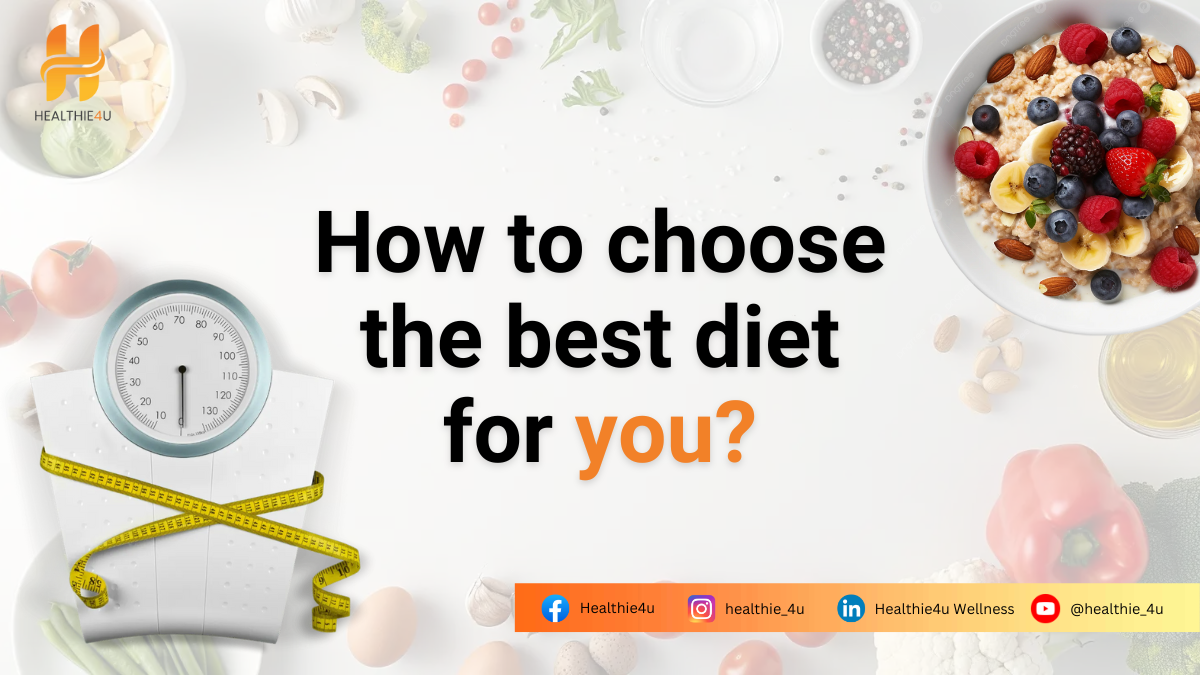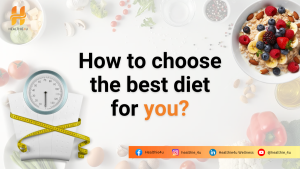

Choosing the right diet can be overwhelming with the myriad of options available today. Each diet plan promises different benefits, but the best diet is one that fits your lifestyle, goals, and health needs. Here’s how to make an informed decision to choose a diet that works for you.
1. Identify Your Goals
The first step in choosing a diet is to clearly define your goals. Are you looking to lose weight, gain muscle, improve overall health, or manage a specific condition? Each goal may require a different nutritional approach. For example, a low-carb diet might help with weight loss, while the DASH diet is ideal for lowering blood pressure. Be specific about what you want to achieve.
2. Consider Your Lifestyle
Your lifestyle plays a crucial role in determining the best diet for you. Think about your daily routine, cooking habits, and activity levels. If you’re always on the go, a diet that requires extensive meal preparation may not be sustainable. On the other hand, if you love cooking, a plan like the Mediterranean diet that emphasizes home-cooked meals might be a great fit.
- Busy schedules: Intermittent fasting or meal delivery services
- Active lifestyles: High-protein diets like paleo or keto
- Family considerations: Diets that allow flexibility, like the flexitarian diet
3. Evaluate Nutritional Needs
Your body has unique nutritional requirements, which should be taken into account when choosing a diet. For example, if you have a medical condition like diabetes, high blood pressure, or high cholesterol, certain diets may be more suitable than others. Always consider your overall health when making a decision.
- Diabetics: Low-carb diets that stabilize blood sugar
- High blood pressure: DASH diet
- Heart health: Mediterranean diet rich in healthy fats
It’s also essential to consider your body’s response to different foods. If you’re lactose intolerant, a plant-based or paleo diet that eliminates dairy could be beneficial. Listen to your body and pick a diet that complements your health status.
4. Prioritize Sustainability
One of the biggest reasons diets fail is because they are not sustainable. It’s easy to follow a strict plan for a short period, but the real challenge is sticking to it long-term. Ask yourself whether the diet you’re considering is one you can maintain for the long haul. If it feels too restrictive or complicated, it might not be the best fit for you.
- Long-term sustainability: Focus on balance and moderation (Mediterranean, plant-based)
- Short-term fixes: Diets like keto or Whole30 can be effective but may be hard to maintain
5. Flexibility is Key
A diet that allows some degree of flexibility can make it easier to stick with. Rigidity often leads to frustration and burnout. Flexible eating plans like the flexitarian or Weight Watchers allow you to indulge occasionally while still maintaining overall healthy eating habits. The goal is to develop a healthy relationship with food that doesn’t involve guilt or deprivation.
6. Consult with a Professional
Before starting any new diet, it’s always a good idea to consult with a healthcare professional or nutritionist. They can help assess your specific needs and provide personalized advice. This is especially important if you have pre-existing conditions or are looking to make significant changes to your eating habits.
7. Assess Your Relationship with Food
Understanding your relationship with food is vital in choosing the best diet for you. Some people eat emotionally, while others have specific cravings. A diet that helps you manage your emotions around food and promotes mindful eating, like the Whole30 or intermittent fasting, might be a good choice if emotional eating is a concern.
8. Test and Adjust
No diet is one-size-fits-all, and it may take some trial and error to find the best fit. It’s okay to try a diet for a few weeks and see how you feel. If it’s not working, don’t hesitate to adjust your approach. Remember that the goal is to create a lifestyle change, not just a quick fix. Be patient with yourself and be willing to make adjustments as needed.
Conclusion
Choosing the best diet for you is about more than just following the latest trend. It requires a deep understanding of your goals, lifestyle, health needs, and preferences. Prioritize sustainability, flexibility, and nutritional balance, and consult with a professional to make sure the diet is safe and suitable for your individual needs. Most importantly, remember that the best diet is the one that helps you feel healthy and happy in the long run.


